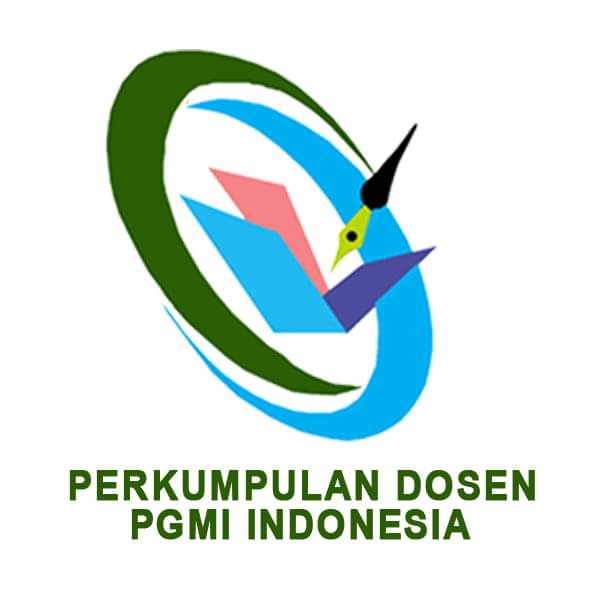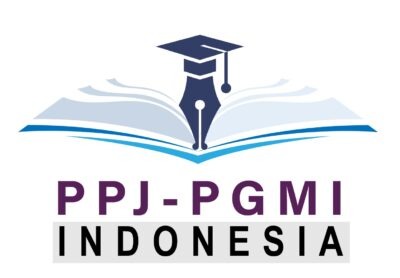Publication Ethic
As part of our efforts to maintain the integrity and quality of scholarly publications, Passikola: Jurnal Pendidikan Dasar & Madrasah Ibtidaiyah upholds high standards of publication ethics at every stage of the publication process. We publish original research papers, literature reviews, and case studies focusing on topics such as Elementary Education Teaching (Natural Sciences, Social Sciences, Mathematics, Language, Citizenship, Religion, Physical Education, and Arts), Elementary Education Curriculum, Elementary Education Management, Guidance and Counseling in Elementary Education, Educational Psychology in Elementary Education, as well as teacher education for Elementary Schools or Madrasah Ibtidaiyah, Teacher Professionalism in Elementary Education, Media, Information Technology, Communication, and Digital Tools in Elementary Education, Evaluation of Learning in Elementary Education, Curriculum Development and Learning Design in Elementary Education, and Learning Strategies in Elementary Education. This ethical framework applies not only to authors but also to editors, reviewers, and all parties involved in the journal’s publication process. Our publication ethics are based on the COPE (Committee on Publication Ethics) Best Practice Guidelines for Journal Editors.
Author's Duties
- Reporting Standard: The author must present an accurate report of the research carried out as well as important points from the results of an objective discussion. Researchers must present the results of their research honestly and without impersonating, falsifying, or improperly manipulating data. A scientific paper manuscript must contain sufficiently detailed information and a bibliography to provide space for other researchers to continue their research. Reports of fraud or intentionally inaccurate behavior are unethical and unacceptable. Manuscripts must follow the provisions of the journal submission guidelines.
- Authenticity and Plagiarism: The writer must ensure that all his writings are truly original. The author cannot submit one manuscript to more than one publication journal at the same time unless it has been approved by the editors. Written works and similar previous publications, whether done by other researchers or by the author himself, can be recognized and used as a reference. If any major literature is used, it is best to use quotation marks. If there is a statement taken directly from the publication of another researcher, it should be marked with a quote.
- Excessive publication at the same time: in general, the author should not submit the same manuscript to more than one journal published at the same time. This is intended to avoid unethical and unacceptable behavior.
- Various publications born of private research must be properly identified and the results of the publications can be used as a reference.
- Recognition of sources used: Authors must acknowledge all sources of data used in research and published citation results that have influenced the nature of the research. We recommend that we always give appropriate recognition of the results of other people's research.
- Ownership: Ownership of published research must be able to accurately reflect the contribution of each individual to scientific papers and reports. This ownership is limited only to researchers who make a significant contribution, especially to the concept, design, interpretation of the study submitted. Other researchers who are equally contributing should be written as the second, third, and so on. When the highest contributor was written as a writer first, then the other contributors is written in the section thanks /acknowledgment. Authors must ensure that all contributors have seen and approved the results of their written work to be published and their involvement as the second, third, and so on.
- Disclosure and Conflicts of Interest: All authors must disclose their manuscripts, whether they are related to finance or conflicts of interest, which may have limited impact on the day of interpretation of their written works. All sources of finance/funding that support all projects must be disclosed.
- Fundamental Errors in Published Journals: If the author finds fundamental errors or inaccuracies in the submitted manuscript, the author must pay attention to suggestions and input from the journal editor or publisher and work with the editor to improve his written work.
- Hazards, Humans, and Animation: The author must be able to identify the hazards contained in his written work such as the chemicals, procedures, and equipment used.
Editor's Duties
- Publishing Decisions: Based on the results of the review of the editorial board report, editors can accept, reject, or request changes to scientific papers. The validation of the work and its importance to researchers and readers should always drive such decisions. Editors may be guided by the policies of the journal's editorial board and are limited by legal provisions such as entry into force regarding defamation, copyright infringement, and plagiarism. Editors may confer with other editors or reviewers in making this decision. Editors must be responsible for everything they publish and must have procedures and policies to ensure the quality of the materials they publish and maintain the integrity of the published writings.
- Manuscript Reviews: Editors must ensure that each manuscript is initially evaluated by the editor for authenticity. Editors must organize and use peer reviews that have a capable and prudent capacity. Apart from that, he must also explain his process of peer-reviewing conveying information to the author, and also indicate which parts of the journal are being reviewed. Editors must also use peer reviewers appropriate for papers worthy of publication by selecting people who have sufficient competence and avoid conflicts of interest.
- Principle of Fairness: Editors must ensure that any manuscript received by the editorial board of the journal is reviewed for intellectual content regardless of the gender, race, religion, nationality, etc. of the author. An important part of his responsibility is to make decisions that are fair and contain the enforcement of the principles of independence and editorial integrity. Editors are in a strong position to make publishing decisions, which makes it imperative that this process is as fair and objective as possible.
- Confidentiality: Editors must ensure that information regarding the manuscripts submitted by the authors is kept confidential. Editors must critically assess any potential breaches of data protection and confidentiality of the author, including using appropriate information related to the latest research presented, and applicable research worthy of publication.
- Disclosure and Conflicts of Interest: Journal Editors will not use unpublished material to be disclosed in manuscripts submitted for their research without the written consent of the authors. Editors should not be involved in decisions about which papers have a conflict of interest.
Duty of Reviewers / Reviewers
- Confidentiality: Information about manuscripts submitted by authors should be kept confidential and treated as confidential information. They may not be shown or discussed with others except as permitted by the editor.
- Recognized Sources: Reviewers should ensure that authors have acknowledged all sources of data used in their writing. It should also identify related scientific papers published and not quoted by the author. Several statements that observations, derivations, or opinions that have been conveyed previously should be accompanied by relevant quotations. Reviewers must notify the editorial board of the journal as soon as possible if they commit irregularities, such as aspects of work ethics, become aware of any substantial similarities between the manuscripts they review and the manuscripts submitted to journals or other published articles, or suspect that this could have happened during research or writing and submission of manuscripts; reviewers, however, must maintain author confidentiality and do not investigate further unless the journal's editorial board requests further information or advice.
- Standard of Objectivity: The review of the submitted manuscript must be conducted objectively and the reviewer must express his views with clear and supportive arguments. They should also follow the journal's directions for the specific feedback the author requires unless there is a reasonable reason not to follow them. The reviewer should be constructive in his review and provide feedback that will help the author to improve the quality of the writer's manuscript, provide suggestions and input that can support the statements written in the manuscript with the consideration that this can improve the quality of the writer's writing.
- Disclosure and Conflict of Interest: Privileged information or ideas obtained through peer review must be kept confidential and not used for personal advantage. Reviewers should not consider manuscripts in which they have conflicts of interest resulting from competitive, collaborative, or other relationships or connections with any of the authors, companies, or institutions connected to the papers. In the case of double-blind review, if they suspect the identity of the author (s) notify the journal if this knowledge raises any potential conflict of interest.
- Confidential information or ideas obtained through gain peer review must be kept confidential and not used for personal. Reviewers should not consider which text has a conflict of interest that would result in a competitive, collaborative, or other relationship or connection with any of the authors, companies, or institutions with which the article is associated. If there are two confusing views, the reviewer may suspect the identity of the author by notifying the editorial board that this paper has the potential to create a conflict of interest.
- Accuracy: Reviewers must respond within the agreed time frame. He only agrees to review/review the manuscript if they are reasonably sure they can submit the results of their review within the mutually agreed time, informing the journal as soon as possible if they need additional time. If he finds it impossible to complete his manuscript review within the stipulated time, this information must be communicated to the editor so that the manuscript can be sent to other reviewers.








